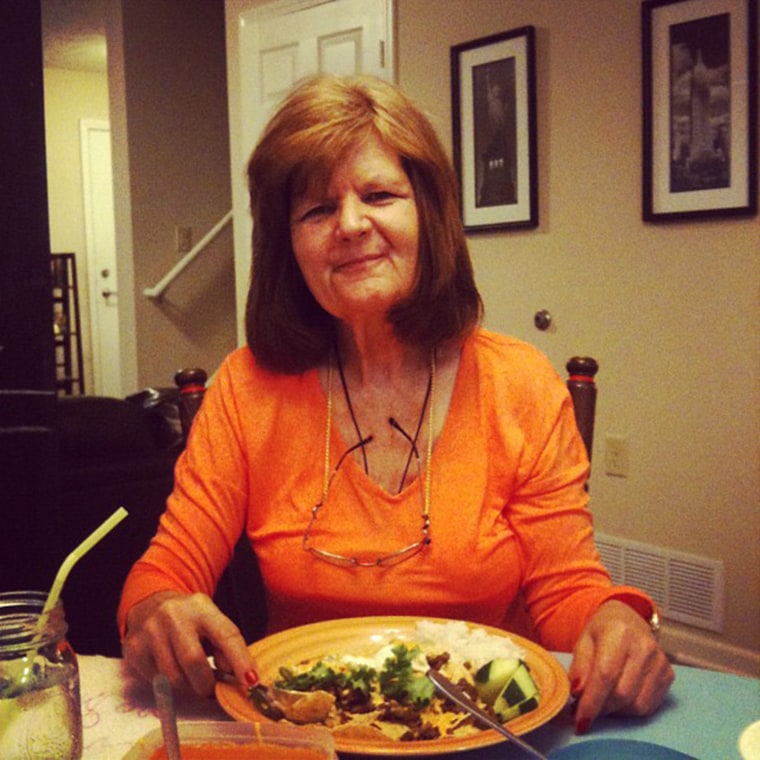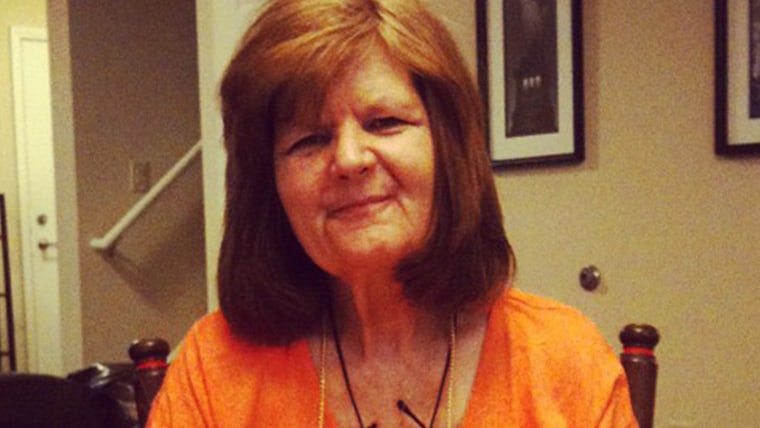At the airport to pick up her mother for a Christmas visit, Angie Meeker was stunned to see her mom rolling toward her in a wheelchair. In their weekly phone conversations, Melena Brown had insisted to her daughter that all was well. But looking at her frail and unkempt 57-year-old mother, Meeker knew none of those assurances were true.
“She looked awful,” says the 36-year-old business consultant from Columbus, Ohio,, recalling that 2012 visit. “I realized she had just been putting on a really good front over the phone. I knew right then that I couldn’t let her go back home. ”
Meeker's unfortunate holiday surprise is all too common, experts say. People who haven't seen their parents or grandparents in a year may find them with early stages of Alzheimer’s or other types of dementia, or physical infirmities that have worsened. There are ways to help an ailing parent — and still keep the holidays happy, experts say.

“Families often don’t know that their relatives are declining,” says Dr. Helen Lavretsky, a professor of psychiatry at UCLA. Physical problems can’t be observed in a phone conversation and even Skype won’t always reveal memory loss "or the ability to manage daily life,” Lavretsky says.
It can be alarming when we actually see a parent face to face. “That’s where the discrepancy comes, in between how well we thought they were doing compared to actually seeing them live,” says Dr. Richard Schulz, a professor of psychiatry at the University of Pittsburgh Medical Center. “On the phone it’s almost like a conspiracy where everyone is trying to see everything as positively as possible.”
Sometimes the signs of decline can be subtle.
“The classic story I see is when the holidays come and the older adult doesn’t do the things they traditionally have,” says Dr. Jason Karlawish, a psychiatrist and professor of medicine and medical ethics and health policy at the University of Pennsylvania. “For example, dad always did his special pecan pies, and when Thanksgiving comes there are no pies or they are a disaster. For many, those may be the first symptoms that show that a parent can’t do everyday tasks anymore.”
Bringing up the subject with a declining parent can be tricky, says Karlawish.
Unless it’s a crisis, wait until after the holidays have passed to intervene. “Tell them you’ve seen some changes that you’re concerned about,” Karlawish counsels. “Ask if it’s OK to talk to their doctor to get a sense of how things are going. Make an appointment and go with your parent. It’s not going to work for mom to go by herself.”
Expect some resistance. Parents often don’t want to be a burden and they also don’t want to give up their independence, experts say.
That was the case with Brown, who had been diagnosed several years before with an autoimmune disease called "stiff-person syndrome" that causes muscles all over the body to spasm and stiffen. Meeker didn’t know that her mother’s doctor had recently given her just six months to live.
Between inadequate medical care and no one nearby to advocate for her, Brown was just slipping away.

After Christmas, Meeker and her husband, Robert Meeker, told Brown she had to stay with them. “You can’t take care of yourself like you need to," Meeker remembers saying. “She cried and said, ‘You don’t have the right to do this to me.’ It was really terrible. It felt like I was taking over her life.”
After a week, though, her mom relented, realizing that Meeker was right. It wasn’t until Meeker went to her mother’s house that she realized just how bad things had gotten.
“When I went into her house I saw how she had been living,” Meeker says. “I could tell from looking around the house that she basically had been living in her bed.”
Seeing how your parents are living day to day can be an eye-opening experience. “While the well-rehearsed social call once a week can be easily negotiated, going to the person’s house can be something else,” Karlawish says. “You might find old food in the refrigerator, or that your parent has been living off of tea and crackers because they no longer are able to shop and cook.”
In the end, Meeker’s mom agreed to come back to Ohio and move into an assisted-living facility. That was two years ago.
Since then Meeker has found a doctor with expertise in her mother’s condition. Still, caring for her has been time consuming, with 90 or so doctor visits a year.
But it’s clearly been worthwhile. The new medications prescribed for her mom have worked wonders. Now Brown is out of the wheel chair and using a walker. Meeker hopes her mom will even be walking on her own again soon.
“She’s now asking, ‘Is there a possibility that I might living on my own again?’” Meeker says. “The fact that we are even asking that shows how different she is than she was two years ago.”
